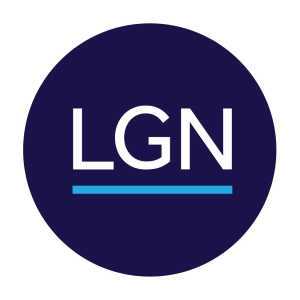Governor Tim Walz today signed Executive Order 20-81, which requires Minnesotans to wear a face covering in indoor businesses and indoor public settings. Researchers have advocated for masking, calling it a simple and effective step to slow the spread of the COVID-19 virus. To date, 30 states across the country, Washington D.C., and Puerto Rico have issued similar mandates.
“COVID-19 has impacted every corner of our state and every aspect of our lives,” said Governor Walz. “But as Minnesotans always do during tough times, we come together and we take care of one another. And right now there’s no better way to demonstrate our Minnesotan values than by wearing a mask. By combatting the spread of COVID-19, masking will help protect our neighbors, keep our businesses open, and get us on track to return to the activities we love.”
“Wearing a mask is one of the best ways we can slow the spread of COVID-19 and prevent Minnesotans from getting sick in the first place,” said Lt. Governor Peggy Flanagan. “As someone who has lost a loved one to this virus, I know that every death we can prevent is another family who does not have to feel this kind of grief. Masking up helps us keep businesses open, socialize safely, and embrace a new normal. But most importantly, it will save lives.”
“Until there is a widely available vaccine, wearing a mask is one of the best tools we have for limiting the spread of COVID-19 and its harmful impacts,” said Minnesota Department of Health (MDH) Commissioner Jan Malcolm. “Masking up when heading out, along with practicing social distancing and other preventive measures, are extremely important and will help us slow the spread of the disease so we can do more of the things we all want to do. As we’ve learned more about the virus, the science is increasingly clear that wearing masks significantly cuts the risk of spreading the disease from one person to another. Even if you are confident you don’t have serious illness, remember that without showing any symptoms you could pass the infection along to someone who is at high risk of severe illness or death. No one wants to take that chance with a friend or loved one.”
“Wearing a making is the quickest path to reopening our economy,” said Minnesota Department of Employment and Economic Development (DEED) Commissioner Steve Grove. “By wearing a mask, Minnesotans are helping keep businesses and communities open. Masks are more than just a courtesy – they are essential to protecting employees and customers.”
The mandate goes into effect on Saturday, July 25. DEED and MDH will be working together to distribute masks to underserved communities and businesses across the state. Over the past several weeks, business owners and medical professionals have been showing their support for a mask mandate, saying it takes the burden off them to enforce people’s behaviors.
Individuals with a medical condition, mental health condition, or disability that makes it unreasonable for the individual to maintain a face covering are exempt from the order. This includes, but is not limited to, individuals who have a medical condition that compromises their ability to breathe, and individuals who are unconscious, incapacitated, or otherwise unable to remove a face covering without assistance. These individuals should consider using alternatives to face coverings, including clear face shields, and staying at home as much as possible.
Children who are five-years-old and under are also exempt. Those who are under two-years-old should never wear a face covering due to the risk of suffocation.
While the goal of this Executive Order is voluntary compliance, not enforcement, any individual who willfully violates this Executive Order is guilty of a petty misdemeanor and upon conviction can be punished by a fine not to exceed $100. Businesses willfully violating this Executive Order are guilty of a misdemeanor and can be punished by a fine not to exceed $1,000 or up to 90 days in jail. The Attorney General, as well as city and county attorneys, may also seek civil penalties from businesses who are in violation of this Executive Order.
The mandate will have the full force and effect of law upon the approval of the Executive Council, which is made up of Governor Walz, Lt. Governor Flanagan, Attorney General Ellison, Secretary of State Simon, and State Auditor Blaha.
For information and resources on the mask mandate, including frequently asked questions, visit mn.gov/COVID19.
